At this time of year they’re everywhere, and the very mention of them can send the avid gardener into spasm. Keeping them in check is a never ending battle, and all too often it’s one that the weeds seem to be winning!
Natural success stories
The things that make many people so anti-weed are the very things that make them so successful in nature. They disperse effectively, grow quickly, propagate at an alarming rate, and seem to thrive anywhere and everywhere. We go to extraordinary lengths to eradicate weeds: fire, chemical warfare, mechanical annihilation and countless other forms of aspiring botanical genocide. But the weeds return… they always return!
Surely there has to be a better way?
All weeds really are is plants growing in the wrong place at the wrong time. If you take a closer look at your common garden-variety weeds you’ll actually find that they’re pretty amazing plants. Most are colonisers: front line troops in nature’s battle to reclaim waste ground and bare earth. In nature these colonising plants play a crucial role, preparing and enriching the soil for the longer-term species that will eventually take over, laying the groundwork for a healthy, sustainable ecosystem. So why don’t we make use of these very useful traits in the garden?
Overcoming prejudice and harnessing positives
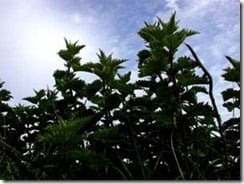 The big problem is that we’re conditioned from an early age to see weeds as a bad thing, and for the gardener the quest to eradicate them has become all-consuming. If we can learn to look beyond our initial preconceptions, and think about working with nature instead of striving against her, we could perhaps harness some of the weeds’ successful traits and use them to benefit our gardens. For example, we’re regularly removing nutrients from the garden when we weed and of course when we harvest our crop. Obviously we can’t just keep taking things out of the soil without adding something back in if we want our gardens to stay healthy. Weeds can be great way to do that.
The big problem is that we’re conditioned from an early age to see weeds as a bad thing, and for the gardener the quest to eradicate them has become all-consuming. If we can learn to look beyond our initial preconceptions, and think about working with nature instead of striving against her, we could perhaps harness some of the weeds’ successful traits and use them to benefit our gardens. For example, we’re regularly removing nutrients from the garden when we weed and of course when we harvest our crop. Obviously we can’t just keep taking things out of the soil without adding something back in if we want our gardens to stay healthy. Weeds can be great way to do that.
Take the stinging nettle (Urtica dioica), the dandelion (Taraxacum officinale) and coltsfoot (Tussilago farfara) for example — all of these are deep-rooted specialists at drawing nutrients from deep in the soil, where they are unavailable to most other plants. It’s one of the things that makes them such effective colonisers. By allowing these “weeds” to grow in unused corners of your garden, cutting them back regularly, and using their nutrient-rich leaves as compost material, organic mulch or to make liquid plant feed, you can recycle these valuable nutrients, adding them to the topsoil, enriching it and helping your garden plants to thrive. Comfrey (Symphytum sp.) is sometimes grown specifically for this purpose.
Other common weeds have properties that make them excellent companion plants. Weeds are usually native plants, which means they’re particularly attractive to native pollinating insects, which visit our garden to feed on the native plants, but go on to pollinate our garden plants too. Some of these insects, like hoverflies, have larvae that feed voraciously on garden pests like aphids, helping to keep our garden plants pest-free too. Other weeds, like clovers (Trifolium sp.), make superb close-growing cover-crops: a living mulch that doesn’t leave room for other, less desirable, weeds to grow. Clovers also fix nitrogen from the air and make it available to neighbouring plants, acting as a living perpetual slow-release fertilizer. Still others, like Yarrow (Achillea millefolium), release chemicals that actually repel common garden insect pests, helping to keep them away from crop plants.
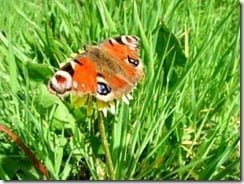 Finally, let’s not forget the importance of weeds as a refuge for wildlife. Weeds play host to myriad insects, which in turn provide food for other invertebrates, birds and mammals. Some are essential food plants for many of our more familiar butterfly and moth species, including the red admiral, peacock and small tortoiseshell butterfly’s, which lay their eggs exclusively on the stinging nettle.
Finally, let’s not forget the importance of weeds as a refuge for wildlife. Weeds play host to myriad insects, which in turn provide food for other invertebrates, birds and mammals. Some are essential food plants for many of our more familiar butterfly and moth species, including the red admiral, peacock and small tortoiseshell butterfly’s, which lay their eggs exclusively on the stinging nettle.
Weeds have much more to offer in the garden than you might imagine… something it may be worth considering before you reach for the weedkiller!


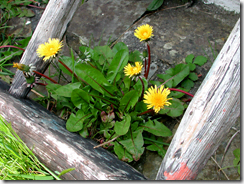
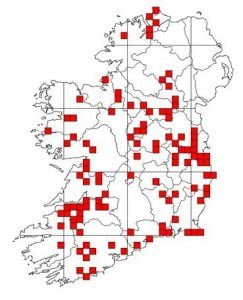

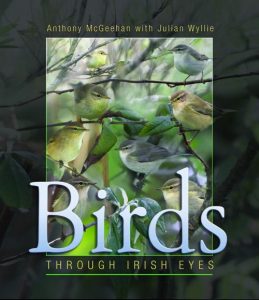



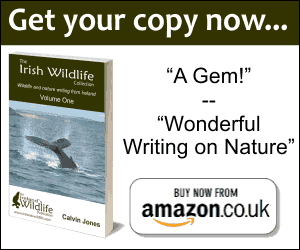

1 comment
Andy Kelly
The close association between our native flora and our wildlife is a basic building block for the rich and diverse wildlife we still possess. Our obsession with with control is gradually giving way to more thoughtful management of our growing environment and recent EU directives reflect this change in attitude.
Many of our most successful weeds can also be utilised as foraged food. My European visitors have often commented on the availability of wild plants (or weeds if you like) in our countries lanes and fields, long may it last.
gardengrow.ie